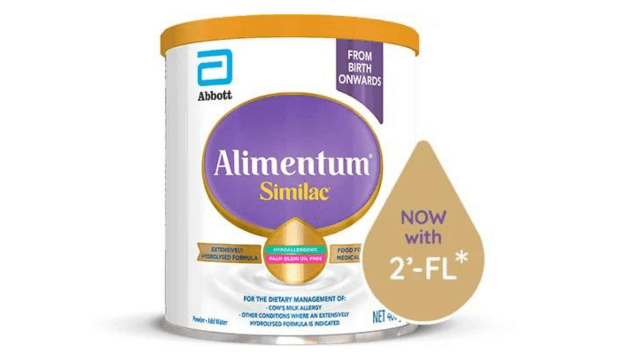8 Tell-Tale Signs of Deteriorating Health and How to Fix It

Maintaining optimal health should be a top priority for everyone. However, in our hectic modern lives, it’s easy to neglect self-care and fall into unhealthy habits. The repercussions of poor health can be severe – from developing chronic diseases to feeling constantly tired and stressed. Thankfully, our bodies give us signals when our health starts deteriorating. Awareness of these signs and taking action can help you get back on track to wellness.
In the US alone, 6 in 10 adults have a chronic disease, while 4 in 10 have two or more chronic diseases. The most common chronic diseases – heart disease, chronic lung disease, stroke, cancer, Alzheimer’s, diabetes, and chronic kidney disease – are among the most prevalent, costly, and preventable of all health problems. Unhealthy habits like poor diet, lack of physical activity, smoking, and excessive alcohol contribute significantly to the development of these chronic conditions. Making lifestyle changes and addressing warning signs early on can prevent the progression of various diseases and lead to better health outcomes.
Below, we’ll discuss some tell-tale signs that your health may be deteriorating and suggest how to address them.
- Frequent Minor Illnesses
Colds, flu, and other minor issues are common. But if you find yourself sick more than often, your immune system may be compromised. Contributing factors may include chronic stress, poor diet, lack of sleep, certain medications, or underlying health conditions.
In some cases, the adverse effects of prescription medications may lead to worsening your illness. If you believe a medication has potentially harmed you, filing a drug lawsuit is advised. These lawsuits can provide legal remedies for those negatively impacted by certain pharmaceuticals, and they reflect a growing concern about the safety and oversight of the drugs we consume.
Considering IV therapy for cold and flu is one potential option to boost your immune system and help your body fight off infections more effectively.
Additionally, focusing on stress reduction techniques, such as meditation or yoga, improving your diet by incorporating more fruits and vegetables, ensuring you get enough sleep, and consulting with a healthcare professional to review your medications can all play a crucial role in strengthening your immune system and reducing the frequency of minor illnesses.
- Constant Fatigue
Feeling tired sometimes is normal, but persistent exhaustion that won’t go away through rest may indicate declining health. Potential causes include a poor diet, sedentary lifestyle, sleep disorders, anemia, thyroid issues, depression, or stress.
To boost energy, ensure you get 7-9 hours of quality sleep per night. Eat a balanced diet focused on whole, nutrient-dense foods and stay hydrated. Or you can try and reduce stress through yoga, meditation, or talking to a friend. Also, check in with your doctor to rule out any underlying conditions. Moderate daily exercise and spending time outdoors can also help fight fatigue.
- Weight Changes
Fluctuations in weight, especially when unintended, can be a red flag. Gaining pounds could stem from an overly sedentary lifestyle, increased stress eating, new medication, or thyroid dysfunction. Unexpectedly losing weight may be due to depression, digestive issues, cancer, or other concerns.
To maintain a healthy weight, emphasize whole foods like fruits, vegetables, and lean proteins. Stay active by engaging in regular exercise. Address emotional eating by journaling, meditating, or speaking to a therapist. But it’s best to consult your doctor if weight shifts do not resolve through lifestyle adjustments. They can investigate potential underlying causes.
- Skin, Hair, and Nail Changes
Skin rashes, acne, eczema, hair loss, and brittle nails can indicate internal imbalances. Potential triggers include nutritional deficiencies, allergies, autoimmune disorders, skin conditions, stress, and hormonal changes.
Protect your skin from extreme sun damage and keep it moisturized. Eat a balanced diet with ample protein, vitamins A, C, D, and zinc to nourish skin and hair. Manage stress levels through self-care activities. But consult a dermatologist if symptoms do not improve with topical treatments and lifestyle changes. They can offer proper advice on how to overcome such issues.
- Poor Concentration and Memory
Difficulty focusing, recalling details, or making hasty decisions may arise from chronic stress, sleep deprivation, depression, etc. While seldom occurrences are normal, repetition of such behavior may indicate an issue with your health.
Get 7-9 hours of quality sleep nightly, reduce stress through exercise or meditation, and consume a nutritious diet. Supplements like fish oil, curcumin, and ginseng can support brain health. But it’s advised to rule out underlying causes by scheduling a physical and mental health assessment and bloodwork.
- Low Libido
A dip in sex drive or function can stem from health problems like obesity, high blood pressure, diabetes, hormone imbalances, or arthritis pain. Psychological issues, including anxiety, depression, and stress, can also play a role.
Discuss concerns with your doctor to identify potential underlying causes. Manage chronic health conditions through diet, exercise, medication, or supplements. Make time to relax, connect with your partner and engage in sexual activity. Counseling can help address mental health factors impeding your private life. Open communication and foreplay can also improve intimacy.
- Digestive Distress
Stomach pain, cramping, bloating, constipation, and diarrhea can indicate an unhealthy gut. Causes range from food sensitivities and infections to IBS, IBD, and other chronic digestive diseases.
Identify and avoid trigger foods. Eat more prebiotic and probiotic foods to support gut bacteria. Stay hydrated, exercise regularly, and manage stress levels. Over-the-counter remedies can provide symptom relief. If problems persist, see a gastroenterologist to check for underlying illnesses. They may order diagnostic tests.
Support your body’s defenses through daily exercise, sufficient vitamin C and zinc intake, and probiotic foods like yogurt. Manage stress levels, get adequate rest, and wash your hands frequently. Some immune-boosting supplements may help, but check with a healthcare practitioner first.
- Low Energy Reserves
Difficulty completing your normal fitness routine, recovering from exercise, or handling daily tasks can signal declining endurance. A sedentary lifestyle, poor nutrition, chronic diseases, sleep disorders, and aging can diminish energy reserves.
Gradually increase physical activity and consume energizing whole foods. Allow proper rest between workouts. Check with your doctor to rule out any underlying medical conditions. Supplements like CoQ10, iron, B vitamins, and magnesium may help boost energy, but it’s best to listen to your body and adjust your activities to avoid burnout.
Conclusion
Focusing on the warning signs and taking proactive steps can help get your health back on track. Addressing issues on time improves the likelihood of reversing decline and avoiding progression to more serious illness. While some symptoms may require medical care, many can be improved through lifestyle measures like a nutritious diet, stress relief, adequate sleep, exercise, and hydration. Investing in your well-being pays dividends through improved energy, resilience, and quality of life. Our health is one of our greatest assets – protect and nurture it above everything else.






